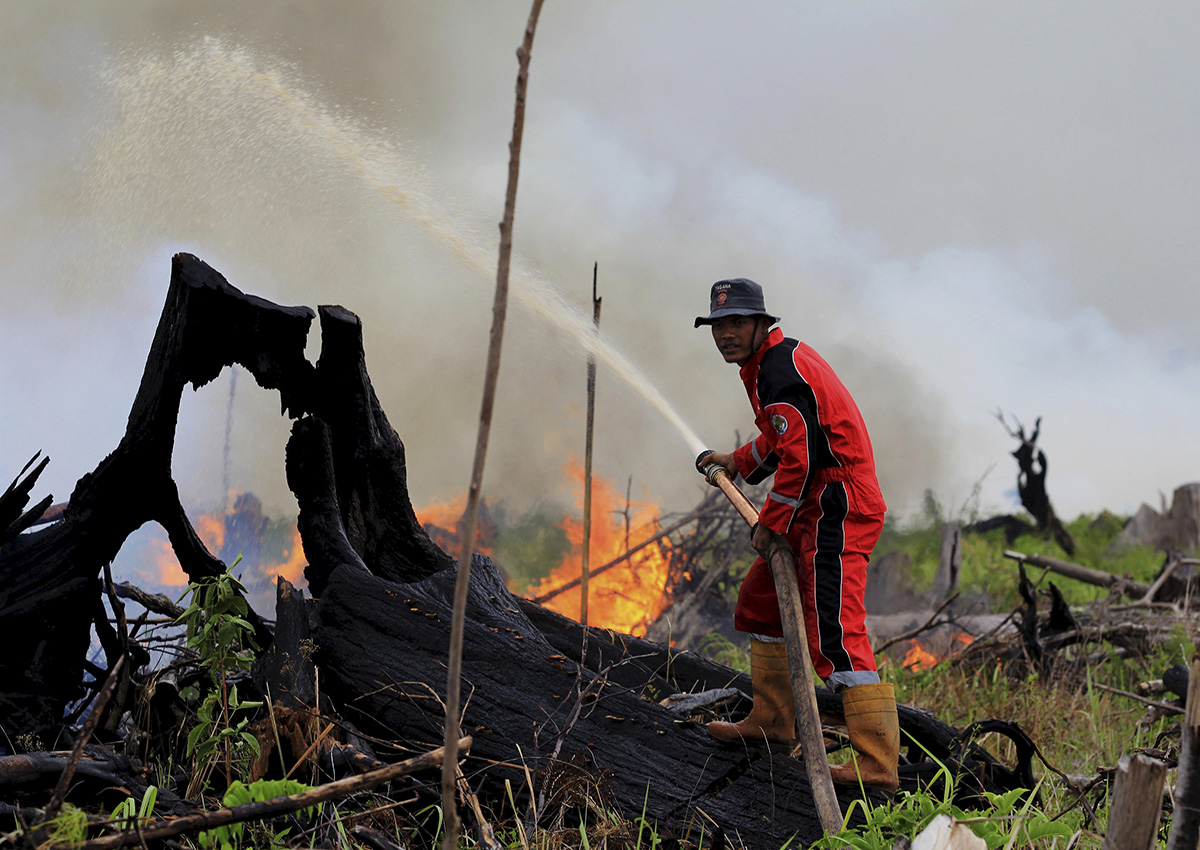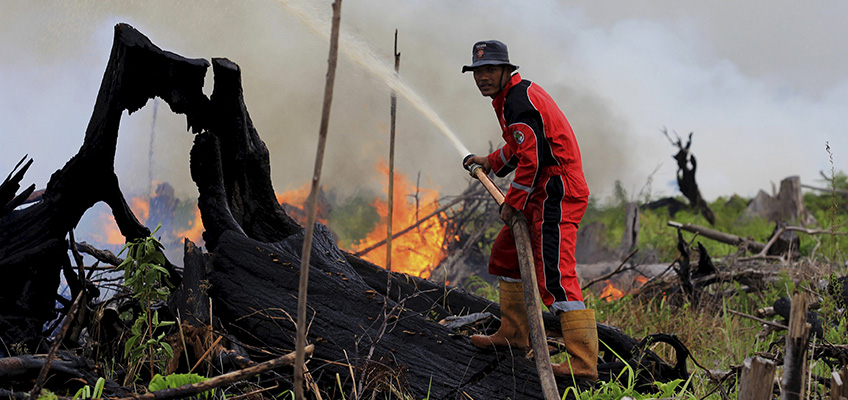JAKARTA – Indonesia expects dryer than normal weather in several fire and haze-prone regions in western and central Indonesia in March and April, the state weather agency (BMKG) said on Monday, referring to a recent increase in fires and hotspots.
The region suffers every dry season from so-called haze caused by smouldering fires, often set deliberately to clear land for palm oil plantations on Sumatra and Borneo islands.
Fires were particularly bad in 2015 because of a prolonged dry season caused by the El Nino weather pattern, with smoke blanketing neighbouring Singapore and Malaysia for weeks and drifting as far north as the Thai capital, Bangkok.
In October, senior government officials sought to divert blame for the fires and choking smog that had cost the country an estimated US$16 billion (S$22 billion), saying BMKG failed to predict the severity of the El Nino weather phenomenon.
“Riau in March and April has the potential for low rainfall, so the potential for fires is high,” BMKG climatology chief Mulyono Rahadi Prabowo told reporters, referring to the province on the central eastern coast of Sumatra. “Eastern Kalimantan (on the east of the island of Borneo) also needs to be on the alert for forest fires.”
Last week, Riau’s governor declared a state of emergency among efforts to prevent a recurrence of the 2015 haze.
Another official at the weather bureau said there was a 50 per cent chance of a La Nina weather pattern affecting Indonesia in the fourth quarter of this year, potentially causing a wetter than usual “dry” season and heavier rainy season.
“Usually commodities that collapse during a wet dry season are sugar and tobacco,” said Nurhayati, who heads the BMKG agriculture climate forecasting division.
Indonesia’s coffee, cocoa and palm oil crops are unlikely to be impacted severely by La Nina, she said, while a wetter dry season benefits rice production.
In 2010, Indonesia’s sugar production dropped by about one-third due to La Nina, she said.
For weather updates from AsiaOne, click here:

























































































